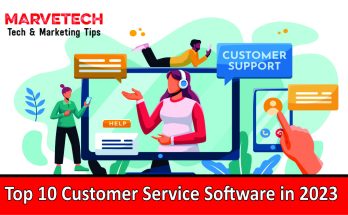In 2023, online income verification tools have emerged as efficient alternatives to traditional methods. Automated income verification platforms use AI and machine learning to analyze income data from multiple sources, providing detailed reports quickly. Open banking APIs enable secure access to real-time financial data, improving accuracy and facilitating faster income verification. These tools streamline processes, enhance security, and offer convenience for businesses and individuals alike.
Introduction
In the digital age, verifying the income of individuals has become crucial for various industries such as lending, insurance, real estate, and e-commerce. Traditional methods of income verification often involve manual processes, paperwork, and delays. However, with advancements in technology, online income verification tools have emerged, offering faster, more efficient and accurate methods of confirming income information. In this article, we will explore a couple of online income verification tools that are gaining popularity in 2023.
What is Online Income Verification?
Online income verification is the process of confirming and validating an individual’s income using digital methods and tools. It involves accessing and analyzing income-related data from online sources such as payroll systems, financial institutions, and tax authorities. By leveraging technology, online income verification streamlines the process, offers faster results, and eliminates the need for manual paperwork and documentation. It is commonly used by businesses, lenders, insurers, and service providers to assess eligibility, make informed decisions, and streamline financial processes in the digital age.

Automated Income Verification Platforms
Automated income verification platforms utilize artificial intelligence (AI) and machine learning algorithms to verify an individual’s income quickly and accurately. These platforms often integrate with multiple data sources, including payroll systems, financial institutions, and tax authorities, to gather relevant income data. By analyzing this data, the algorithms can generate comprehensive income reports, providing details such as income stability, historical earnings, and average monthly income.
These platforms offer benefits to both businesses and individuals. For businesses, they streamline the verification process, reducing manual labor and minimizing the risk of human error. They also provide a secure and compliant method of handling sensitive financial data. Individuals benefit from faster and hassle-free income verification, enabling them to access financial services, loans, and rental agreements without the need for extensive paperwork.
Here Are Online Income Verification Tools
1. Data Integration
Automated income verification platforms integrate with various data sources to gather income-related information. These sources may include payroll systems, financial institutions, tax authorities, and even gig economy platforms. By consolidating data from multiple sources, these platforms can provide a more comprehensive and accurate picture of an individual’s income.
2. AI and Machine Learning
The algorithms used in automated income verification platforms employ AI and machine learning techniques to process and analyze the collected data. These algorithms can identify patterns, trends, and anomalies in income streams, offering insights into income stability, average monthly earnings, and historical income patterns.
3. Customization and Reporting
These platforms allow businesses to customize income verification reports based on their specific requirements. The reports generated provide a detailed breakdown of the individual’s income, including salary components, additional sources of income, and any deductions or withholdings. This information enables businesses to assess an individual’s financial capacity accurately.
4. Security and Compliance
Automated income verification platforms prioritize data security and compliance. They adhere to strict security protocols and encryption standards to protect sensitive financial information. Additionally, they comply with relevant regulations, such as data protection laws, to ensure the privacy and confidentiality of individuals’ data.
Open Banking APIs
Open banking APIs (Application Programming Interfaces) have revolutionized the financial industry by allowing secure data sharing between different financial institutions and third-party providers. In the context of income verification, open banking APIs enable authorized parties to access an individual’s financial information directly from their bank accounts.
These APIs provide real-time access to a person’s income data, including salary deposits, transaction history, and account balances. With proper consent and authorization from the individual, businesses can retrieve this information and use it to verify income without relying on manual documentation or verification processes.
Open banking APIs offer enhanced security and privacy controls, ensuring that individuals have control over their data. They also promote competition and innovation within the financial sector by enabling the development of new services and products that rely on accurate income verification.
1. Real-time Data Access
Open banking APIs facilitates real-time access to an individual’s financial data directly from their bank accounts. These APIs establish secure connections between authorized third-party providers and financial institutions, allowing for seamless data retrieval. The information retrieved can include salary deposits, transaction history, account balances, and other relevant income-related data.
2. Consent and Authorization
To access an individual’s financial data through open banking APIs, proper consent and authorization are required. The individual must explicitly grant permission to the third-party provider, ensuring that they have control over the data being shared. This consent-driven approach enhances privacy and data protection.
3. Enhanced Accuracy
Open banking APIs offer a higher level of accuracy compared to manual income verification processes. By accessing real-time financial data, businesses can verify income information with greater precision, reducing the risk of errors or falsifications. This accuracy is particularly beneficial for lenders, insurers, and landlords who need reliable income verification to assess risk.
4. Innovation and Collaboration
Open banking APIs promote collaboration and innovation within the financial industry. By allowing third-party providers to access financial data, new services and products can be developed that leverage valid income verification. This opens up opportunities for improved financial inclusion, personalized financial advice, and tailored products based on an individual’s income profile.
Conclusion
In 2023, online income verification tools have become indispensable for various industries that require reliable and timely income information. These online income verification tools offer significant advantages in terms of speed, accuracy, and convenience compared to traditional methods. As technology continues to advance, we can expect further improvements and the emergence of new tools in the field of income verification, ultimately benefiting both businesses and individuals in streamlining financial processes.





Howdy, would you mind letting me know which web host you’re utilizing? I’ve loaded your blog in 3 completely different web browsers, and I must say this blog loads a lot quicker then most. Can you suggest a good internet hosting provider at a reasonable price?